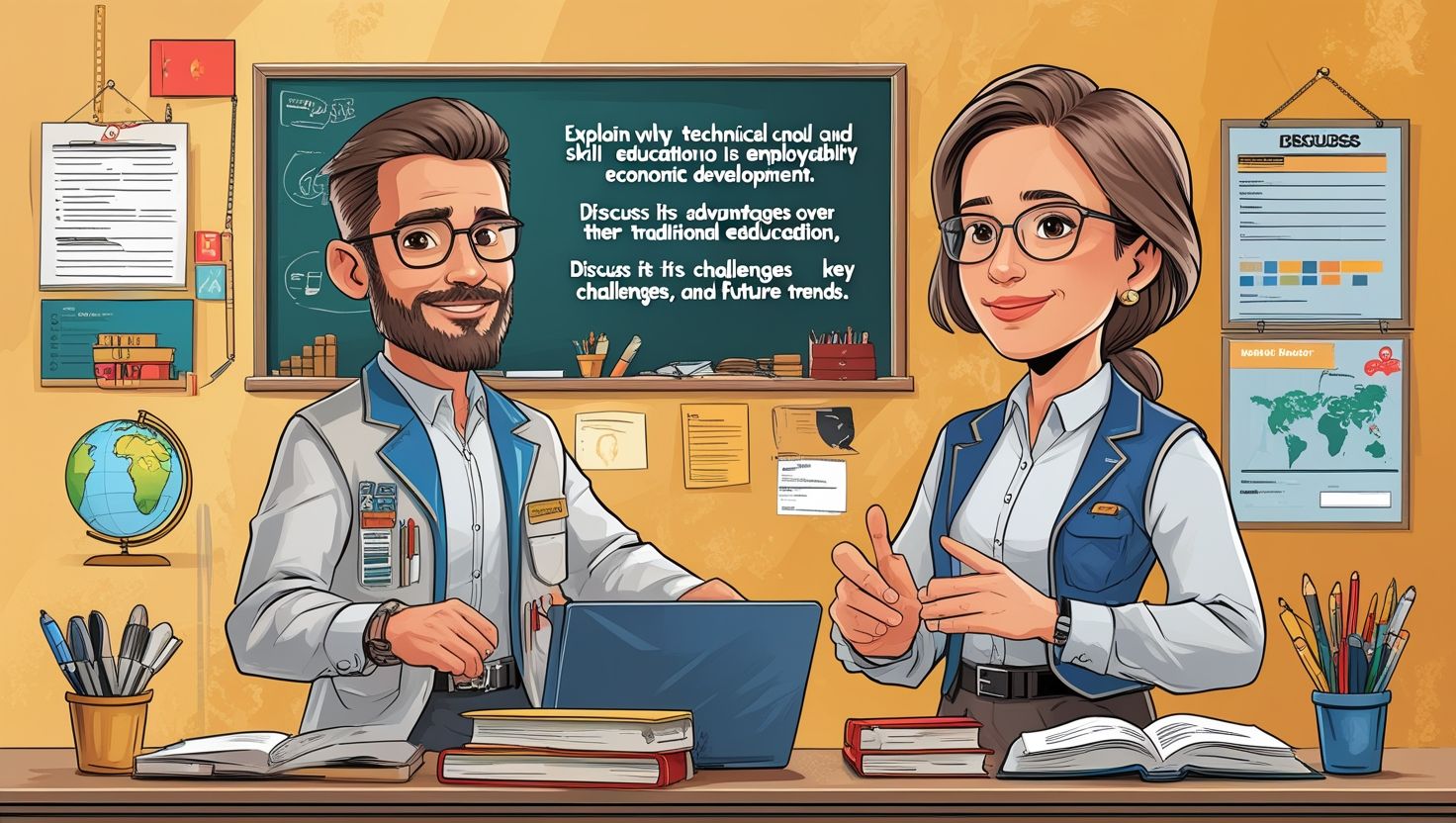Introduction to Technical and Skill Education
The Importance of Technical and Skill Education in the Modern World, Technical and skill education plays a crucial role in preparing individuals for the workforce by equipping them with practical knowledge and hands-on expertise. Unlike traditional academic education, which focuses on theoretical concepts, technical education emphasizes industry-specific skills that are directly applicable in real-world scenarios. This form of education is essential in bridging the gap between classroom learning and employment demands. With rapid technological advancements, industries now require a workforce that is not only educated but also skilled in specialized areas. Technical education encompasses fields such as engineering, information technology, healthcare, and vocational trades, ensuring that students are job-ready upon completion of their training.
The Growing Demand for Skilled Professionals
The global job market is evolving, with an increasing demand for skilled professionals who can adapt to new technologies and industry trends. Employers now prioritize candidates with technical expertise over those with only academic qualifications. Industries such as manufacturing, IT, healthcare, and construction require workers with specialized skills to maintain efficiency and innovation. Technical education provides students with certifications and diplomas that enhance their employability. Additionally, skill-based training programs help reduce unemployment by creating a workforce that meets industry standards. Governments and private institutions are investing in technical education to ensure economic growth and workforce development.
Advantages of Technical Education Over Conventional Degrees
One of the key advantages of technical education is its focus on practical learning rather than theoretical knowledge. While conventional degrees provide a broad understanding of subjects, technical courses offer hands-on training that prepares students for specific careers. This reduces the need for additional training after employment, saving time and resources for both employees and employers. Furthermore, technical education is often shorter in duration compared to traditional degree programs, allowing students to enter the workforce faster. Many technical courses also offer apprenticeship opportunities, giving learners real-world experience before they graduate. This practical exposure makes technical graduates more competitive in the job market.

Role of Vocational Training in Skill Development
Vocational training is a critical component of skill education, targeting specific trades such as carpentry, plumbing, electrical work, and automotive repair. These programs are designed to provide immediate employment opportunities by focusing on job-specific skills. Vocational education is particularly beneficial for individuals who prefer hands-on work over academic studies. Many countries have integrated vocational training into their education systems to address skill shortages in various industries. Apprenticeships and internships associated with vocational courses allow students to gain industry experience while earning certifications. This approach ensures that learners are not only qualified but also confident in their abilities when entering the workforce.
Impact of Technology on Technical Education
Technological advancements have revolutionized technical education by introducing digital learning tools and online courses. E-learning platforms, virtual labs, and simulation software enable students to gain technical skills remotely. Artificial intelligence (AI) and automation have also influenced curriculum development, ensuring that technical courses remain relevant to industry needs. Robotics, cybersecurity, and data science are now integral parts of technical education, reflecting the growing demand for tech-savvy professionals. Institutions are incorporating blended learning models, combining online and offline training to enhance accessibility. This technological integration ensures that technical education remains dynamic and aligned with future workforce requirements.
Government Initiatives to Promote Skill Education
Governments worldwide are implementing policies to promote technical and skill education as a means of economic development. Schemes such as India’s “Skill India Mission” and Germany’s dual education system emphasize vocational training and apprenticeships. These initiatives aim to equip youth with employable skills while addressing industry demands. Public-private partnerships are also being encouraged to enhance the quality of technical education through funding and infrastructure development. Scholarships and subsidies are provided to students pursuing technical courses to make skill education more accessible. Such efforts ensure a steady supply of skilled professionals, boosting national productivity and reducing unemployment rates.
Challenges in Technical and Skill Education
Despite its benefits, technical education faces several challenges, including outdated curricula, lack of qualified instructors, and inadequate infrastructure. Many institutions struggle to keep up with rapid technological changes, leading to a mismatch between education and industry needs. Additionally, societal perceptions often undervalue vocational training compared to traditional degrees, discouraging students from pursuing technical courses. Financial constraints also limit access to quality skill education in underdeveloped regions. Addressing these challenges requires collaboration between governments, industries, and educational institutions to modernize training programs and improve resource allocation.

Future Trends in Technical and Skill Education
The future of technical education lies in adaptive learning, personalized training, and continuous skill upgradation. Micro-credentials and short-term certification courses will gain popularity, allowing professionals to upskill without long-term commitments. Emerging fields such as renewable energy, artificial intelligence, and blockchain will shape new technical education programs. Virtual reality (VR) and augmented reality (AR) will enhance practical training by providing immersive learning experiences. Lifelong learning will become essential as automation and AI transform job roles. Technical education must remain flexible to accommodate these changes and prepare learners for future challenges.
Conclusion:
Technical and skill education is indispensable in today’s competitive job market. By focusing on practical training and industry-relevant skills, it empowers individuals to secure stable employment and contribute to economic growth. Governments, educational institutions, and industries must collaborate to overcome existing challenges and enhance the quality of technical education. Embracing technology and updating curricula will ensure that skill development programs remain effective. As the demand for skilled professionals rises, investing in technical education will be key to building a sustainable and prosperous workforce for the future.

8 thoughts on “The Importance of Technical and Skill Education”